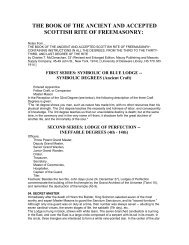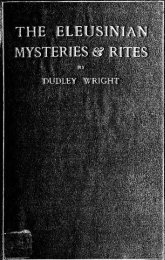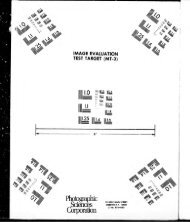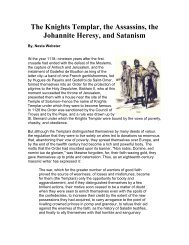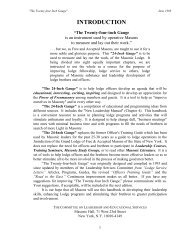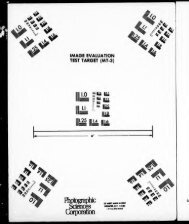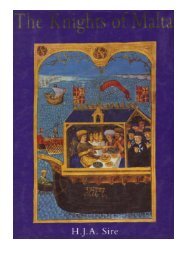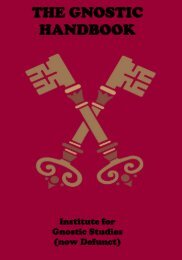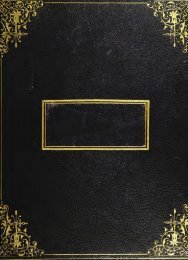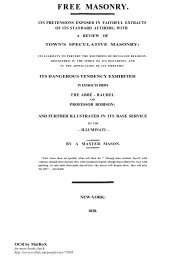Scottish Rite Masonry Illustrated - The Masonic Trowel
Scottish Rite Masonry Illustrated - The Masonic Trowel
Scottish Rite Masonry Illustrated - The Masonic Trowel
Create successful ePaper yourself
Turn your PDF publications into a flip-book with our unique Google optimized e-Paper software.
60 GB.&ND MASTER OF ALL SYMBOLIC LODGES. INITIATION. 61<br />
Lofty titles, arbitrarily assumed, and to which the<br />
inventors had not condescended to attach any explanation<br />
that should acquit them of the folly of assuming<br />
teniporal rank, power and titles of nobility, made the<br />
world laugh afid the initiates feel ashamed. Some of<br />
the titles we still retain, but they have, with us, meanings<br />
entirely consistent with that spirit of equality<br />
which is the foundation and peremptory law of its being;<br />
of all masonry.<br />
<strong>The</strong> Knight, with us, is he who devotes his hand, his<br />
heart, and his brain to the science of masonry, and professes<br />
himself the sworn soldier of truth. <strong>The</strong> Prince”’<br />
is he who aims to be chief, first, leader, among his<br />
equals, in virtue and good deeds.<br />
<strong>The</strong> Sovereign”<br />
8 is he who, one of an order whose<br />
members are all Sovereigns, is ~uprexne.’only because<br />
the law and constitutions are so which he administers,<br />
and by which he, like every brother, is governed.<br />
<strong>The</strong> titles Puissant, Potent, Wise and Venerable, indicate<br />
that power of virtue, intelligence and wisdom,<br />
which those ought to strive to attain who are placed in<br />
Note 2S7.—”Prlnce. <strong>The</strong> word Prince is not attaeb~d as a title to<br />
any <strong>Masonic</strong> ottice. but is prefixed aa a pert of tbe name to several<br />
degrees, as Prlnee of the RoyaI~ 8ecret. Prince of Rose Croix. and ~riDca<br />
of Jerusalem. In all of these Instances it seelna to convey nome idea of<br />
sovereignty inherent in the character of the degree. Tbus We Prince ot<br />
the Royal Secret was the ultimate and, of course, controlling degree<br />
of tbe <strong>Rite</strong> of Perfection. wbence. shorn, however, of it~ sovereignty,<br />
it has been traneferr~d to the Ancient ~and Accepted Ecottiab <strong>Rite</strong>. <strong>The</strong><br />
Prince of Rose Cmlx, although holding in Home <strong>Rite</strong>, a subordinate<br />
po.ition. was originally an independent degree, and th~ repreuentntlye<br />
of flosierucian <strong>Masonry</strong>. It is still at the head of tbe Wrench <strong>Rite</strong>.”—<br />
Mackey’3 Encyclopaedia of Jw.emaaonq, Aztislo Prince.<br />
Note 2S8.—”Snverelgn. An epithet applied to certain degrees which<br />
were invested witb supreme power over interior ones; aa Sovereign Prince<br />
of Rose Crcui, which Is the highest degree of tbe ~‘renh <strong>Rite</strong> alid of<br />
~me other <strong>Rite</strong>s, and Sovarsugn hmpcotor.Gontral, wbkb ig the con.<br />
trolling degree ot the Ancient and Accepted <strong>Rite</strong>. Some degrees, originally<br />
Sovereign in the <strong>Rite</strong>s in which they wtre first ~itahli’hed. In<br />
being transferred to other <strong>Rite</strong>s, have lost tbeir sovereigu ebaracter,<br />
but still improperiy retain tbe name. Tbua tbe Rose Croix degree of<br />
the Scottisb <strong>Rite</strong>. whih is there only the elghteentb. snd aubordinate<br />
to the thirty-third or S~ipreme Couneii. stili retains eYers’wber~. except<br />
in the Southern JurIsdIctIon of tbe United States, the title of Sovereign<br />
Prince of Bose Croix.’ —Mackey’3 Encyclopaedia of Eremaaonq, Aitici.<br />
—‘Un.<br />
high office by the suffrage of their brethren, and all<br />
other titles and designations have an esoteric meaning,<br />
consistent with modesty and equality, and which those<br />
who receive them should fully understand.<br />
As Master of a lodge, it is your duty to instruct your<br />
brethren that they are all so many constanL lessons,<br />
touching the lofty qualifications which are required of<br />
those who claim them, and noL merely idle gew-gaws<br />
worn in ridiculous imitation of the times when the<br />
Nobles and the Priests were masters and the people<br />
slaves, and that in all true masonry, the Knight, the<br />
Pontiff,” the Prince, and the Sovereign, are but the<br />
first among their equals, and the Cordon,’40 the clothing<br />
and the jewel buL symbols and emblems of the virtues<br />
required of all good masons. <strong>The</strong> Mason kneels<br />
no longer to present his petition for admittance, or to<br />
receive the answer; no longer to a man as his superior,<br />
who is but his brother, but to his God, to whom he appeals<br />
for the rectitude of his intentions, and whose ~id<br />
he asks to enable him to keep his vows. No one is de-<br />
Not. U9.—”Wbat is <strong>The</strong> meaning of ~poniJff? ‘Pontlfl means bridge<br />
maker, bridge buIid~.r. Why are they c~,ih.d in thjt way? Here is<br />
the ~xpIanation of tbe fact In tbe very first years of the exlRtt,nce of<br />
Rome. at a lime of Which we h8~e a ~‘ery fahulous hlqtorv and but<br />
few existing monuments, the little town of Rome. not built on seven<br />
hiiis, as is generally supposed—there are eleven of tbem now: then<br />
there were within the t~ n leaR than sey.n, even—tbat little toun<br />
bad a great deal to fear from mi enemy whieh sbouid take one of the<br />
bills that were out of town—the Janieulunj—beeause the Jnni~uiaim<br />
is bigher than the otberR. and from tbat hill an enemy could very easily<br />
throw stones fire, or apy meana of destruction Into the town. <strong>The</strong> Janie..<br />
ului’i was sepah~ed from the town by the Tiher. <strong>The</strong>n the firRt necessity<br />
for the defence of that little town of Rome was Ia have a bridge<br />
<strong>The</strong>y had built a wooden bridge over the Tiber. and a great point of<br />
interest to the towu was, that this bridge should be kept alwaya in<br />
good order, ao that at any moment troops could pass over. Tben. witb<br />
the ~peclal genius of tbe Romans. of wbich we have other Instancee. Ibey<br />
ordained, curiously enougb. that the men who v.ere n corporation to<br />
take care of that hridge ahould be sacred: that their functioD. necessary<br />
to the defence of tbe town. should be considered holy: that they Should<br />
be priests, and Ihe highest of them was called ‘tbe high bridge ma&er.~<br />
So It hsppened that tbere waa in Rome a corporation of bridge makers<br />
—pontifices——of whom the bead was the most sacred of all Romnans:<br />
hepause in those days bis life and the life of big co<br />
ncccssary to the safets’ of the lown.’ mvanionu wss deemed<br />
And th~,R it ig that thp title at Nntifei M~xiwus. ss8ulned hv the<br />
Pope of Rome. lltrraliv m~nns th~ Orand Bridge Builder. “—Machera<br />
Encyclopaedia of Frcemaaonq, Article Pontiff.<br />
Note 240.—”Ooidon. <strong>The</strong> Masoule decoration. wbfch In English I. caned<br />
<strong>The</strong> ‘oii~ir. is styled by the French ?~fanonu th. aordon.”~Nackey’a Eaq.<br />
elopaodia of Fr.cmasonq• Article Cordon.



